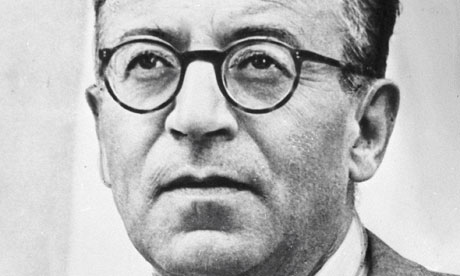
Age: Completed in 1960 and published in 1980. So either 51 or 31.
Appearance: War and Peace II. (Tag-line: This time it's mostly war.)
I'm guessing it's a book about war? War and so much more. Life and Fate is the 900-page masterpiece of Russian journalist and author Vasily Grossman, which, thanks to Soviet censorship, nearly never saw the light of day.
What happened? Luckily for us, a dissident friend of the author smuggled a copy out of the Soviet Union on microfilm and, more luckily still, around 30 years later, the then controller of Radio 4 Mark Damazer read the English translation, fell in love with it, and commissioned a 13-episode adaptation.
Which begins this week? Begins and ends. Radio 4 has made this Life and Fate week, and dedicated all its drama output for eight days to adapted excerpts from the novel, with a cast including Kenneth Branagh, David Tennant and John Sessions.
And what's it about? Oh, you know, people and stuff.
People and stuff? I mean obviously I've not read it.
Right, so what do you know about it? Well, apparently Branagh plays the main character Viktor Shtrum, a Jewish physicist evacuated from Moscow in 1942, and Tennant plays Nikolai Krymov, Shtrum's wife's sister's former lover, now a Commissar at the battle for Stalingrad, and Sessions plays real life war criminal Adolf Eichmann as he inspects a Nazi concentration camp in Poland, and Kenneth Cranham plays Stepan Spiridonov who works at the power station in Stalingrad but quits to go and look after his grand-daughter on a barge. So that's the gist.
Do these characters meet at all? No idea. The producer has said a copy of the family tree is more or less vital for anyone who wants to have a clue what's going on.
Not exactly something light to dip into after Woman's Hour then. Not exactly, no.
Do say: "Of course I've read it, who hasn't?"
Don't say: "I'll wait for the HBO version."
• This article was amended on 20 September 2011 because the original said John Sessions plays war criminal Adolf Eichmann "as he inspects a Polish concentration camp". As we have made clear before there were no Polish concentration camps during the second world war – there were Nazi concentration camps in Poland.

